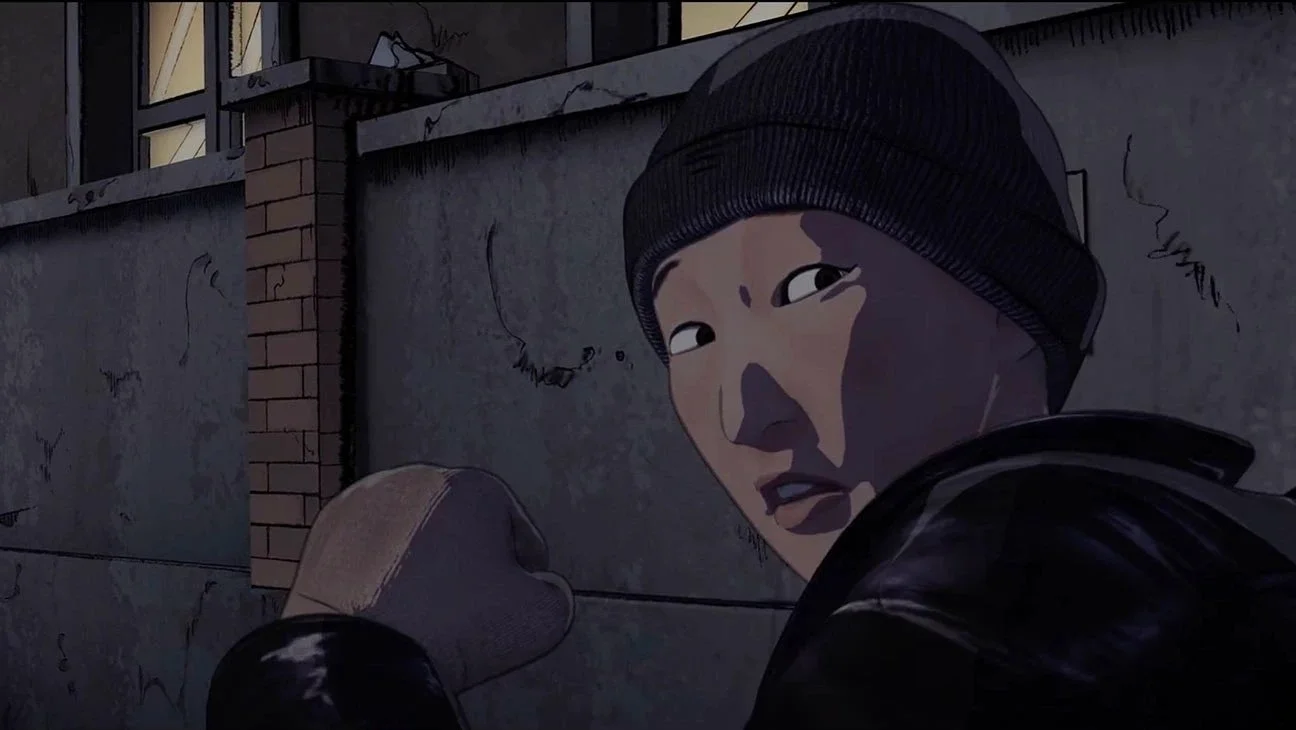Film review: Eternal Spring uses graphic-novel animation to shed light on persecution in China
Documentary-thriller traces the real-life hijacking of a TV station by Falun Gong movement in 2002, and its brutal repercussions
Eternal Spring is now showing at International Village Cinemas and Silvercity Riverport
AS RECENT FILMS like Waltz With Bashir and Flee have shown, sometimes memories are so traumatic, it is more effective to render them through animation. And when those events take place behind the closed doors of state secrecy, it can sometimes be the only way to re-create what happened.
That’s the case for the often riveting Eternal Spring, the first documentary and first animated film to be submitted by Canada to the Oscars.
The film traces back to northeastern China in March 2002, when members of Falun Gong hacked into state TV to counter government propaganda about their banned spiritual group. The elaborate plan, executed by electricians, aunties, and a small group of other everyday folk, would put all of them at extreme risk in a state where every inch of society is closely surveilled. By the time they started cooking up their scheme in an uninhabited housing development, Falun Gong members were already being abducted, tortured, and imprisoned in forced-labour camps.
At its best, this collaboration between Toronto director-writer Jason Loftus and celebrated Chinese-born comic-book artist and Falun Gong follower Daxiong becomes a breathless thriller. Uniquely, it mixes interviews with the few surviving witnesses with animation, rare found footage, and stories of growing up in Changchun from Daxiong. (He fled the repression and now lives in exile in Toronto.)
The artist’s three-dimensional drawings, a mix of intricate lines and painterly gesture, work grippingly onscreen. In one dizzyingly rendered scene of a police crackdown on a hideout, the point of view soars up stairwells and up and down through floors of an apartment building, where bodies are being beaten, tackled, and dragged. More idyllic childhood memories depict a boy growing up in Chongsun amid stilt-walkers, old streetcars, and floating tufts of snow. Daxiong’s black ink lines stylishly capture the repeating monotony of state housing, and he gives each character a distinct personality. (In a cool touch, each is announced, comic-book style, in a comic-book-style freeze frame, with their code name and role—”Auntie Zhou: The Guardian”, “Zhang Wen: The Electrician”.)
An overhead shot of artist Daxiong creating images for Eternal Spring.
The night of the TV hijacking jumps back and forth between multiple locations—electrical poles, family living rooms, interrogation rooms—cranking up the tension. The fallout and arrests are depicted in all their disturbing detail in a searing indictment of state-sponsored torture.
What the film lacks is an in-depth, meaningful look at Falun Gong, and why it motivated its followers to take such perilous risks, beyond their love of its physical and “moral” teachings. Those are complex issues. The spiritual practice has evolved to mean different things to different people; its reputation has taken hits in the news in recent years, with its founder, Li Hongzhi, now running a controversial guarded compound-church in New York State, and the Falun Gong newspaper The Epoch Times being criticized for spreading right-wing, pro-Trump misinformation.
What's perhaps more important is that, as Eternal Spring puts it, the movement became so popular that it could no longer be controlled by the Chinese government. Outside of China, Falun Gong members practise their exercises and teachings unharrassed in more than 70 countries. For those of us who live in free societies where we can believe whatever we want, that's a powerful reminder—one made with unusual artistic power in Eternal Spring. As much as Daxiong makes his rag-tag gang of TV hackers look like comic-book characters, we never forget they're human beings.















